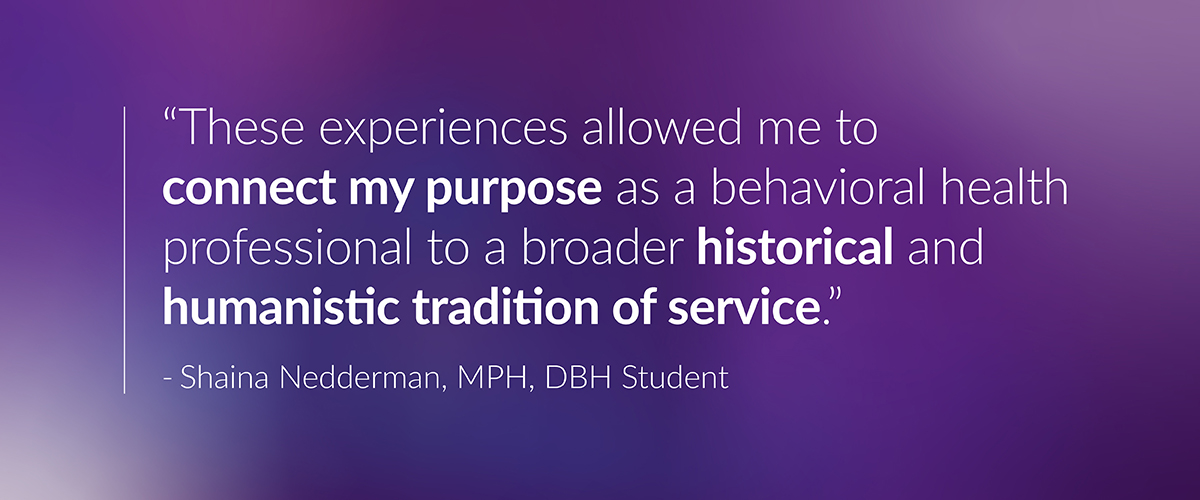This summer, Shaina Nedderman, a Doctor of Behavioral Health (DBH) student at Cummings Graduate Institute for Behavioral Health Studies, joined healthcare professionals from around the world at the International Foundation for Integrated Care (IFIC) Summer School in Oxford, England. The prestigious program brought together thought leaders and changemakers to explore frameworks and strategies for implementing integrated, person-centered care systems worldwide.
“As a DBH student with a background in public health and integrated care systems, I was drawn to the IFIC Summer School for its reputation as a global leader in advancing person-centered, integrated models of care,” Shaina shared. “I hoped to leave with practical frameworks and an expanded global perspective to inform my work in addressing behavioral health disparities.”
One of the most impactful takeaways from the program came during a group activity focused on applying the Theory of Change framework to real-world transformation challenges. “Working alongside international colleagues with diverse professional and cultural backgrounds illuminated the value of interdisciplinary, cross-sector engagement in driving systems change. It reinforced the importance of co-production, contextual adaptation, and community ownership in achieving sustainable outcomes.”
The interdisciplinary nature of the summer school, which included participants from Norway, Singapore, Australia, and more, enriched the learning experience and broadened Shaina’s view of integrated care.
“The cross-cultural collaboration fostered a deeper understanding of the shared values, dignity, access, and equity that underpin integrated care, while also highlighting the importance of tailoring strategies to specific political and cultural environments.”
Back home, Shaina is already applying what was learned. “I have begun integrating the persona model, introduced during the summer school, into the design of a maternal mental health program targeting underserved populations. This framework is helping me to humanize data, elevate patient voice, and ensure that behavioral and medical interventions align with the lived experiences of those most impacted by systemic barriers.” The emphasis on co-production, stakeholder engagement, and culturally responsive care made a lasting impression.
When asked what advice they would give to fellow DBH students considering similar opportunities, Shaina shares that the, “IFIC Summer School offers a rare opportunity to engage with global experts, contribute meaningfully to high-level dialogue, and explore frameworks that can be directly applied to real-world implementation. It is particularly valuable for those who aspire to lead health system transformation with a focus on person-centered, equitable care.”
From the historic churches and libraries of Oxford to the critical conversations on health system transformation, the experience proved to be both personally and professionally transformative.
“These experiences allowed me to connect my purpose as a behavioral health professional to a broader historical and humanistic tradition of service.”
Interested in shaping the future of healthcare through integrated behavioral health?
Learn more about the Doctor of Behavioral Health program at Cummings Graduate Institute by visiting cgi.edu/dbh.






























